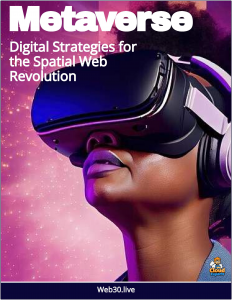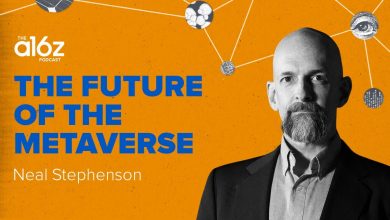Can You Upload Your Mind & Live Forever?
Will we realize a transhuman future where our minds can be digitized and uploaded to live forever in a virtual universe?
 This video explores the possibility of ‘mind uploading’, suggesting it may come to be the evolution of humanity, a concept explored in Cyberpunk 2077.
This video explores the possibility of ‘mind uploading’, suggesting it may come to be the evolution of humanity, a concept explored in Cyberpunk 2077.
Mind uploading, also known as whole brain emulation (WBE), is the hypothetical futuristic process of scanning a physical structure of the brain accurately enough to create an emulation of the mental state (including long-term memory and “self”) and copying it to a computer in a digital form.
The Wall St Journal explored the concept, asking Will Your Uploaded Mind Still Be You?
While theoretical there are visible early steps happening today. In 2018 Nectome won a federal grant to pioneer a startup doing exactly this although with a catch, you have to be dead.
In this presentation Peter Diamandis, founder of the XPRIZE Foundation and co-founder of Singularity University and Human Longevity Inc., talks through the core mechanics, such as the Brain-Machine Interface.
Video Summary
To explore whether this concept is possible the video first asks the fundamental question: What is the human mind?
To answer this question it defines the mind as the collective ability of consciousness and intelligence, and mind uploading is the hypothetical concept of making a copy of this inner world and transferring it into a computer to run a simulation of human consciousness.
It suggests a simple process but it quickly becomes tricky when you consider it is based on three main assumptions:
- Physicalism – The human mind is in brain, achieved through it’s arrangement and brain chemistry.
- Scanability – All of this can be scanned.
- Computability – The mind can be translated into computable algorithms.
These are very significant challenges when you consider the complexity of the brain. It is the most complex biological structure known, with over 100 billion neurons communicating via one million billion connections and that are sending signals up to one thousand times each second, which is one quadrillion events.
For a sense of the scale of complexity required to digitize such an entity, in 2019 scientists successfully mapped a cubic millimetre of mouse brain. It was cut into 25,000 slices and five electron microscopes ran continuously for five months, collecting more than 100 million images, assembled into a 3D model over three months.
The completed data set for this takes up 2 million Gigabytes of Cloud storage. To scan a whole human brain this would need to be repeated a million times and require 2 million Petabytes of storage.
This is even before factoring in other complications, such as potentially the need to map out the underlying proteins and individual molecules that cause all the behaviours seen at the cellular level, producing more data than there is currently available storage on earth.
The Transhuman Future
Most fundamentally the difficulty with the concept is that the human self, it’s entire consciousness, stretches far beyond only what the mechanics of the brain enables, into dimensions that science does not yet reach.
From 8m:50s the video works from the assumption uploading will become possible, and explores how humanity and society would be transformed. It’s a domain with an extensive following and set of ideas, described as ‘transhumanism‘.
The video asks would you feel differently about your physical life if you knew that it is not a finite event but rather you’ll become functionally immortal?
Your digital self could co-exist with you, and experience a myriad of activities not possible for your real self, from walking on the surface of the sun to visiting the past, and you could work on projects that require more than a lifetime to complete. You could be uploaded to spacecraft and go on journeys that take thousands of years.
Also how will the negative aspects of human personality translate into this digital world and what will this mean for how digital personalities interact as part of this system? Will some attempt to subvert and dominate it?
Ultimately it may simply be the case that like the body the human mind is only intended to have a short and finite experience, and after upload may choose to retire itself. Either way, it is a fascinating concept that encourages us to explore not only the awe inspiring potential of future technologies but also the very essence of ourselves.



